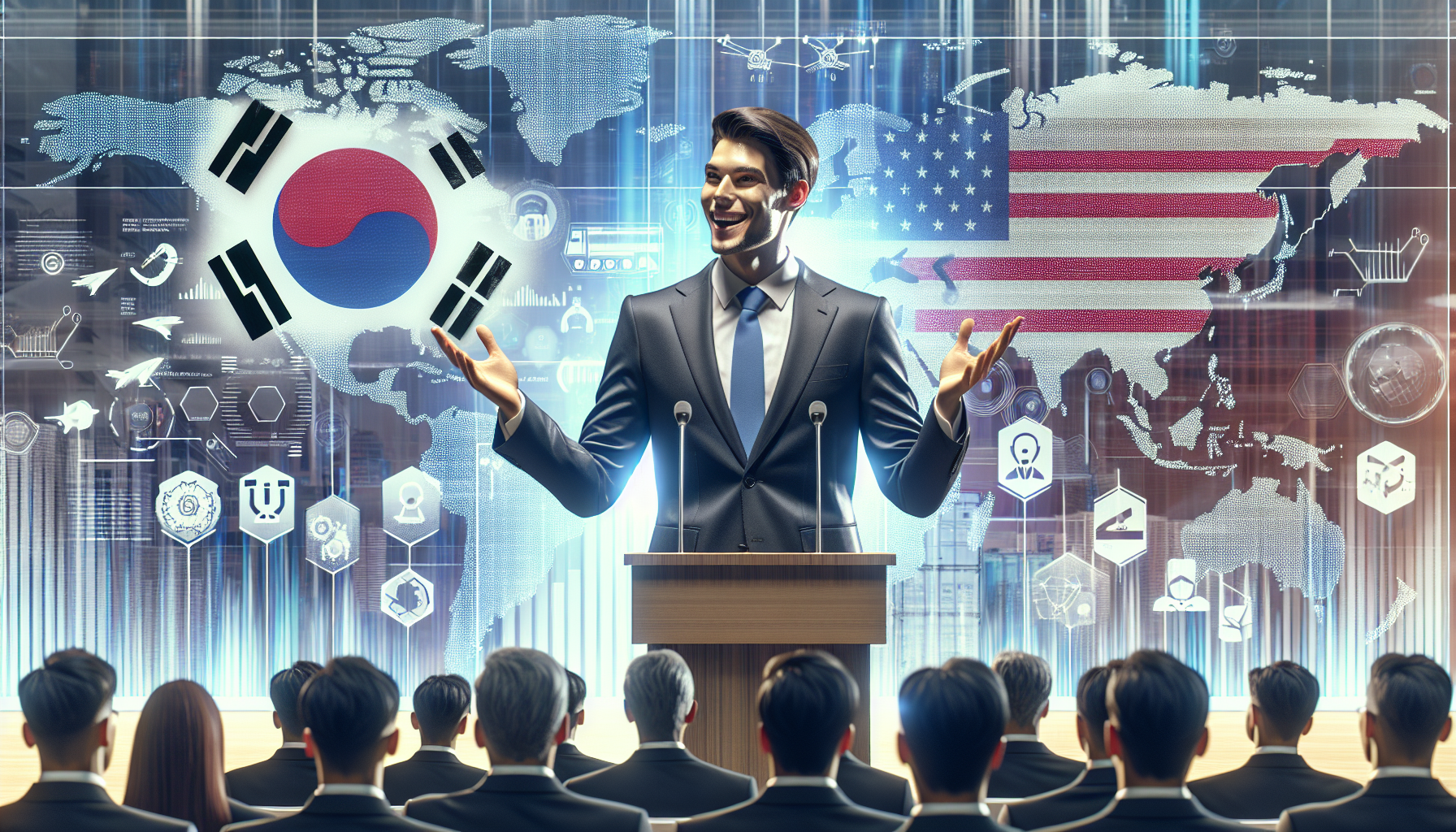Nvidia CEO Jensen Huang expressed confidence that South Korean companies will nimbly handle US tariff concerns during the Asia-Pacific Economic Cooperation (APEC) summit. He highlighted Korea's significant opportunities in physical AI and robotics, while praising partnerships with Samsung and SK hynix. The remarks came shortly after Seoul and Washington finalized a trade deal.
On October 31, Nvidia CEO Jensen Huang told reporters on the sidelines of the APEC 2025 summit in Gyeongju, South Korea, that he is confident South Korean companies with US operations will "thrive again" despite concerns over Washington's tariff policies. "I think that whatever the tariffs are, so long as they're stable for some time, we'll make it work. And I have every confidence that the Korean companies are going to be quite agile, and we'll find a way to thrive again," Huang said.
The comments followed Wednesday's finalization between Seoul and Washington of details on South Korea's US$350 billion investment pledge and a trade deal reducing US tariffs on Korean goods and autos from 25 percent to 15 percent. Nvidia earlier announced plans to deploy up to 260,000 graphic processing units (GPUs) in South Korea, partnering with the government and major firms including Samsung Electronics Co., SK Group, Hyundai Motor Group, and Naver Cloud Corp., to build large-scale artificial intelligence (AI) factories.
Separately, Hyundai Motor and Nvidia signed a trilateral memorandum of understanding (MOU) with the South Korean government for a state-led initiative to build a national physical AI cluster requiring about $3 billion. The project includes establishing Hyundai Motor Group's Physical AI Application Center, Nvidia AI Technology Center, and related physical AI data centers in the region. "I think the opportunity for Korea for physical AI and robotics is very significant, because Korea has the expertise, the technology. You also have the market, you can create the robot, and you can use the robot in your factories," Huang said. He noted that "very few countries in the world" possess both the expertise and technology to create and deploy robots, adding, "Korea is quite unique, so I'm very excited."
Huang also praised Samsung Electronics and SK hynix for their high bandwidth memory (HBM) capabilities. "I am 100 percent confident that Samsung and SK hynix Inc. will be long-term partners," he said. "We will continue to be incredibly close partners to advance the future of memory technology ... Korea is world class in memory technology." Asked to compare the two, Huang replied, "We don't need to choose, because we need both." SK hynix has been Nvidia's main HBM supplier, but Samsung is rapidly emerging as a core partner, intensifying competition. At an estimated $300 per HBM3E chip, the total HBM volume for Nvidia's planned South Korean Blackwell GPU supply could exceed 900 billion won.

